Yale Forklift Battery Trends: Why B2B Operators Are Switching to Lithium
Forklifts are the backbone of warehouses, manufacturing plants, and logistics operations across the U.S. For B2B companies—fleet operators, procurement managers, and equipment distributors—understanding forklift battery trends is critical for operational efficiency, cost management, and long-term fleet performance.
In particular, Yale forklift batteries are a key component that influences uptime, maintenance requirements, and total cost of ownership (TCO). This article explores the latest trends in Yale forklift battery upgrades, the shift from lead-acid to lithium, and what B2B operators and dealers need to know to stay competitive.
The Role of Batteries in Yale Forklift Fleets
Yale forklifts are widely used in high-intensity environments such as distribution centers, e-commerce warehouses, and manufacturing facilities. In these contexts, battery performance directly affects:
- Fleet uptime and operational continuity
- Maintenance workload and labor costs
- Energy efficiency and long-term sustainability
For distributors and agents, offering lithium battery solutions for Yale forklifts not only strengthens client relationships but also creates additional revenue opportunities through long-term service and support.
Current Yale Forklift Battery Options
Yale electric forklifts generally operate on two primary battery types:
Lead-Acid Batteries
- Well-established, widely available, and low upfront cost
- Require regular maintenance (watering, equalizing, corrosion checks)
- Slower charging and limited cycle life (~1,500 cycles)
Lithium-Ion Batteries
- Fast-charging and opportunity charging without harming battery life
- Longer lifespan (~3,000+ cycles), reducing replacement frequency
- Low maintenance—no watering or equalization required
- Consistent voltage output, improving productivity across shifts
For B2B operators, upgrading to lithium can significantly reduce downtime, streamline fleet management, and lower TCO.
Partner with reliable lithium forklift battery suppliers in USA to secure long-term value for your fleet.
Extended Reading: For a step-by-step guide on transitioning from lead-acid to lithium, see How to Replace a Lead-Acid Forklift Battery with a Lithium One.
Key Benefits of Lithium Battery Upgrades for B2B Users
For Fleet Operators
- Reduced TCO through longer battery life and lower maintenance costs
- Faster charging supports multi-shift operations without requiring spare batteries
- Space savings in warehouses due to fewer battery swaps
For Dealers and Agents
- Differentiated service offering to clients through advanced battery solutions
- Opportunities for additional revenue via training, service, and long-term support
For Logistics and Manufacturing Companies
- Stable and reliable power reduces operational disruptions
- Supports high-intensity, multi-shift environments
Lithium-ion batteries align perfectly with the operational requirements of modern Yale electric forklifts, making them an attractive solution for B2B decision-makers.
Practical Considerations Before Upgrading
When considering a lithium upgrade for Yale forklifts, B2B operators should evaluate:
- Compatibility: Confirm voltage, dimensions, and connector types match your forklift models.
- Charger Requirements: Most lead-acid chargers are incompatible; intelligent lithium chargers may be necessary.
- Vendor Reliability: Choose suppliers who provide consistent supply, BMS integration, and technical support.
Extended Reading: For deeper insights into system integration and operational readiness, see Industrial Forklift Lithium-Ion Batteries – A Deep Dive into Integration, Efficiency, and Operational Readiness.
Market Outlook: Why B2B Operators Are Switching Now
- North American electric forklift adoption is increasing steadily, creating strong demand for high-performance batteries.
- Companies are shifting purchasing decisions from upfront cost to lifecycle value, making lithium-ion batteries more attractive.
- Environmental regulations and ESG commitments are accelerating the move away from lead-acid solutions.
For dealers and distributors, the growing market presents an opportunity to position lithium battery upgrades as a value-added service, strengthening client relationships and capturing new revenue streams.
Conclusion
Yale forklifts remain a staple in warehouses and logistics operations across the U.S., but battery strategy is becoming the key differentiator in fleet efficiency and long-term ROI.
Upgrading from lead-acid to lithium-ion batteries allows B2B operators and dealers to:
- Reduce downtime and maintenance
- Improve productivity across multi-shift operations
- Deliver a safer, more sustainable solution
- Maximize fleet ROI
For companies looking to future-proof their operations, partnering with professional lithium forklift battery suppliers in USA is a strategic move that ensures reliability, scalability, and long-term operational success.
Keywords optimized:
- Yale forklift battery
- Yale forklift battery upgrade
- Lithium battery for Yale forklift
- B2B forklift battery solutions
Extended Reading Recommendations:


